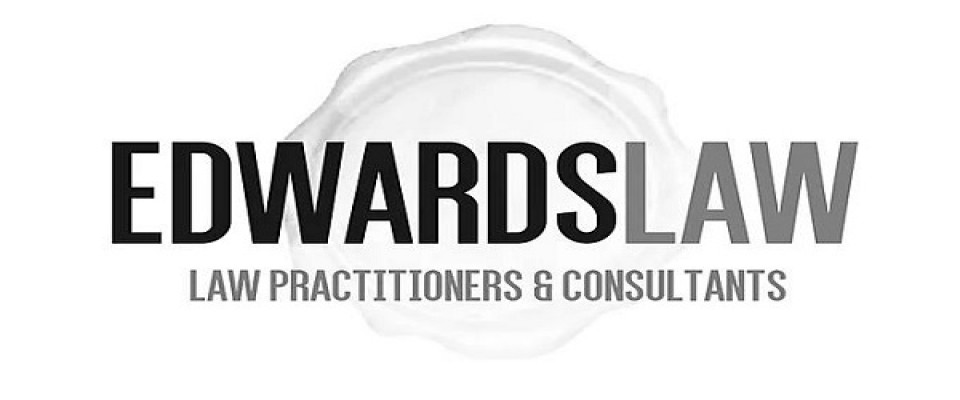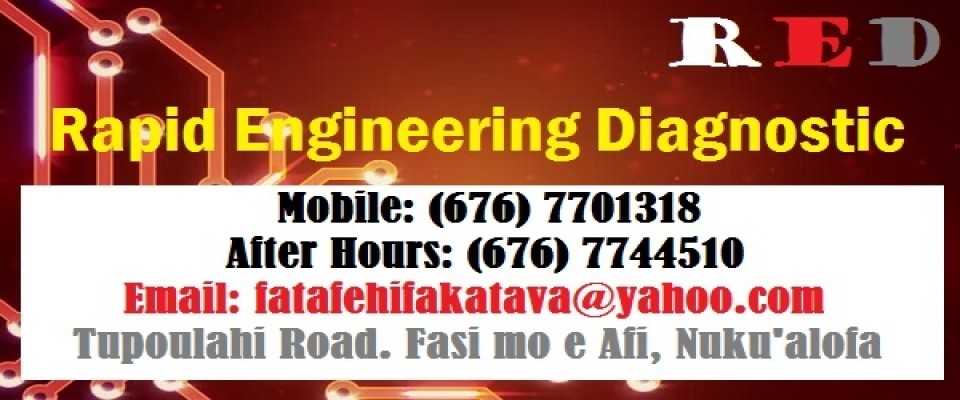Tonga needs quality education that is recognized internationally Featured

Letter to the Editor
Tonga needs quality education that is recognized internationally
Nuku’alofa, 7 June 2016
Editor,
Listening to the message from the Throne during the opening of Parliament on June 2nd where His Majesty referred to Education as one of the three key challenges for the government (Health and Economy being the other two) , and taking note of what has transpired in the Ministry of Education over the last sixteen months, I can't help but support Dr. Sitiveni Halapua's view in his letter to the editor of Matangi Tonga on 1 June 2016 that it is time to work towards improving the quality of education rather than destroying it.
Given the challenge for the government from His Majesty during the opening of Parliament, “Oku fiema’u ke hiki hake ‘a e akó ki ha tu’unga fakatu’apule’anga pea ke fakatokanga’i ‘i Tu’apule’anga” the Ministry of Education should now take up the challenge seriously and develop a roadmap for achieving this challenge. Improving quality education to a level that is recognized internationally is not an easy undertaking and requires a holistic reform of the education system and not a quick-fix or ad hoc approach such as changing to raw marks or introducing a new IT programme or doing away with internal assessment, as that would only add to the current confusion.
To improve the quality of education, the focus and commitment should be directed towards what matters most in education, the student, and what it takes to improve their learning (knowledge, skills and attitudes) to a level where they can be competitive regionally and internationally. This can be achieved by; supporting teachers to improve the effectiveness of their teaching, encouraging school principals and head teachers to support teachers by ensuring that the school environment is conducive for teaching and learning, engaging parents and the community to direct their support towards improving student learning, that is what will improve the quality of education.
In addition, making sure that a relevant curriculum that clearly articulates the learning outcomes (knowledge, skills and values) expected of our children is in place, with an assessment system that focuses on assessing the extent to which students have acquired the knowledge, the skills and the values outlined in the learning outcomes.
The ongoing discussions about examinations, more specifically on 'raw marks' versus 'standardized marks' and recently on 'Internal Assessment' (IA) are but distractions from the main issue of the declining quality of education that His Majesty highlighted in his message to the country during the opening of Parliament. While the preoccupation with Raw Marks vs Standardized Marks, as well as Internal Assessment are important and need to be resolved urgently, they have little influence on the overall quality of education as examination serves different purposes.
Examination only provides a measure of what a student can answer correctly, or incorrectly, in the examination at a certain point in time. Analysis and interpretation of the marks students score on the examination are then carried out to provide information on what students can do which helps in providing a pathway for further higher level studies including university studies. While incumbent government can put in place systems, including processes and procedures, that it considers appropriate and within its mandate, it must make sure that it has the evidence to make sure that the new system, as well as the appropriate processes and procedures, would lead to improvement in the system.
Unfortunately this has not been the case with the changes to the examinations system in Tonga as claims about the weaknesses or failures of the old system are not based on any research or valid evidence, rather it is based only on the perceptions of certain people who have no authority in the field of assessment.
The latest change to the internal assessment is again a clear example of the ad hoc changes that are taking place where the claim against the evil of internal assessment, as has been the case with standardized scores, is unfounded and not based on any research or valid evidence. The assertion that internal assessment is a ‘sin’ is one of the biggest mis-information one can put forward in the area of assessment and indicates either a total lack of understanding of the rationale for having internal assessment or a personal perception of those making the claim.
Without internal assessment, one can only assume that the assessment of what a student “can do” will be based only on the external examinations. If this is the intention, then it contradicts the earlier claim in support of “raw marks” as the external examinations cannot assess all of what a student can do. It cannot assess important skills such as research skills, practical skills, computer skills, etc, thus making the examination and the raw marks it generates an invalid measure of what students can do. The inclusion of internal assessment provides the opportunity to assess the knowledge and skills in those areas that the external examination cannot assess, therefore complementing the external examinations and enhancing the validity of the qualification.
The Examinations and Assessment Unit highlighted this in its review of the 2015 cycle especially the need for the assessment to be valid. Unfortunately it has not been given any serious consideration. The assertion and blame directed towards internal assessment has nothing to do with internal assessment as a sound and internationally recognized and adopted form of assessment.
Instead the blame, if evidence is available, should be directed towards those who are responsible for implementing the internal assessment in the way it was meant to be carried out, the Ministry of Education.
The Ministry of Education should take responsibility for any failure to implement the internal assessment correctly and make sure that every participating school and teachers implement the internal assessment as intended instead of pointing the finger at the internal assessment which is a sound assessment approach adopted internationally.
Faka’apa’apa Atu,
Dr. Visesio Pongi
43 comments
-

Malo loholoho kataki fa'apuku atu hoo kii tanaki tuunga he oku baseless. Laka atu ka Mary kihe PSA kemo koka'anga ai he ko ho fe'unga ia. Pea oku maumau lahi e taimi hano oatu ha fakamatala fakapoto keke inasi ai. Pehe pehee atu pe koe kihe kau tipeiti ae Kele'a he oku mou pito mo uho tatau ioooo
Sione T e takiheei pe e loholoho ia mo oua e fiu e taalanga he koenau fouga ngaue pe ia. -

Oku ke fuu puhi'ea aupito pe koe loholoho. Pea oku fakapiko hoo kii tanaki tuunga oku fai he taumaiaa oku ke omai e koe ha solution kihe gaahi mea koeni oku hoko. Ko hoo tukutaupe kovi holo pe au ia Akilisi i poupoui he ko homou otua ia. Tuku e talanoa ekonomika ia moe langa fakalakalaka heikai aonga ia i ha Pule'anga koe taumua koe Fai Fakamaau. Ku hau ia ke fakamaau'i e faihala ahai mo hai kae haele mai a Sisu o fakamaau'i ahai? Ke talamai ke poupou ka Akilisi a ene founga taefaitotonu?Poupou koe kiai he oku mou tatau. Tuku pe e koe emau view amautolu mo emau tui he oku iai gaahi fakamooni lahi oku mau ma'u.
-

Ko e issue heni ko e Quality Education and International recognition. Kuo lava ia he sivi "raw marks" 2015 pea 'e hoko atu he 2016?
Malo -

Liueli mo Siua, malo 'etau lava ki he 'aho 'uha ni. Na'a ku pehee temo hu mai moua mo ha kii foi te'elango ke maama atu ai e kau fefine ko ee. 'Oku ke hu koe Liueli moe foi tukuaki'i fakalilifu, he 'oku te'eki hopo'i au ko ha tamate tangata mo ha faka'auha. Pea ko koe tokoua Siua, 'oku e'a 'aupito 'a e pukupuku ho'o ilo 'o ke tala e lava e tokoni 'a Dr Pongi ki he fonua. Ne 'iai pe taimi 'o Dr Pongi he fonua pea 'oku ou faka'apa'apa'i ka ko e kaveinga ko ena 'i 'olunga 'oku 'uhinga ai 'eku fehu'ia 'a Dr Pongi. Na'a ne kau he takimu'a hono fakangata 'a e NZ School Certificate, UE, mo e Bursary kae fakahu mai e Tonga School Certificate mo e PSSC pea pehee ki he sivi Form 7. Ko e kamata'anga ia 'o e 'aukolo tokolahi mai mei he high school tokua 'oku 'osi 'enau ako. Ko e ngaue ia 'a e misini pamu maaka. Pea ko hono ola ena, ko e fakautuutu 'a e ta'ema'ungaue 'a e to'utupu. 'Ofa atu pea fakatauange ke mou ma'u ha weekend lelei.
-

'OUA-E-FIU...'IKAI HA TOE ME'A FO'OU HE KO E NGĀUE HALA 'AKI 'A E MAFAÍ, MO E KĀKĀ (CORRUPTION) 'OKU TAU TOUTOU LAU KI AÍ.
Holitu'u koe ke fetongi e kaveingá, ka 'oku aka e me'a kotoa 'a ho'o mou ki'i pule'angá 'i he kākā, fakapone, loi, mo e kaiha'a 'i Pule'anga.
Ko e totonu 'oku tu'uma'u 'oku 'ikai fetongitongi 'o hangē ko e puhi 'a e havilí. -

Ko 'eku fakama'opo'opo eni 'a e anga ho'omou talanga. Ko Asaeli mo Mark Hansen 'oku mahino 'aupito 'oku te'eki ke to hona pito kena kau he talanga 'a e loki ni. Ko 'ete lau 'ena ngaahi tohi 'ikai ha poini ia ai ka ko e loto 'ita pe mo e lau kovi. 'Ikai ngata ai 'oku 'ikai 'aupito kemo taau ke kau he talanoa he ngaahi me'a faka'ekonomika mo fakasosiale 'a e fonua he 'oku mamaha fau ho'omo 'ilo. Mo nofo taha pe he kaila he me'a fakappolitikale, he koia pe 'oku ngofua ai e fakapalai.Ko homo maaka ko e 0 mei he 10. Ko Sione A Mokofisi 'oku taku ko e MBA ka 'oku fu'u ta'engali 'aupito 'a hono MBA mo 'ene a'usia he ngaahi talanga. 'Oku hehema pe ia ke tukuaki'i 'a Piveni mo Siaosi kae 'ikai tipeiti mai he kaveinga. 'Oku ne tukuakii tokua ko 'eku ma'u'anga fakamatala 'a e ongo tangata ko ia. Ko e vakai hifo kuo tekeutua e mo'oni'i me'a koia ko e tupu fakautuutu 'a e ta'ema'ungaue 'a e to'utupu, tu'unga hono hua'i ta'emateuteu atu kinautolu 'ehe system standardisation kae kei vilitaki mai pe. Koia ai 'e 'ikai 'atu hao maaka kae 'atu pe moho MBA 'e taha ka ko e Married But Available (MBA). Koia ai foi tokotolu ko e tu'unga 'oku mou 'iai 'oku te'eki ke mou A"U pea kuo mo'oni e angi 'a e motu'a mei hule, A'U MOE TA'EA'U KATOA KI FALEMAHAKI, malo mo e 'ofa
-

Ne 'anefe ha'amou langa fonua oua e fiu mo loholoho ko hoo mou mea pe oku fai ko e taamate tangata mo e faka'auha komo toto e kakai ee ioooo
-

Lolotonga e flow etau laukonga moe fakahelekeu ia a loholoho. Ai ai e felekeu moe fiepoto ta'epoto. Kuo ne talaatu ka Mark mo Mokofisi ke oua e tausino ka oku lolotonga tausino pe moia. Lau ka Dr. Pongi osi koia ku osi lava tokoni lahi a Pongi ki Tonga ni pea ku omai ene view ke tokoni oku ikai haua Pongi ia mo hane software ke fakatau aki e totongi tukuhau a e kakai.
-

Mo'oni lahi Loholoho, 'Oku 'ifo 'etau 'a'ahi mai ko hono talanoa'i 'ae Kaveinga, koe ng fkkaukau Fo'ou, koe ng a'usia moe Taukei he fofonga'anga........pea lava ai ke fai 'ae Langa Ngaue moe ngaue'i hotau ki'i Fonua.
-

MĀLIE LOHO2...HO'O HEKE HOLO KE HAO MEI HE TAU TONU 'A HONO FANA'I HO'O KI'I 'OA FĀNGOTA AVAAVÁ.
'Oku 'ikai pe te ke tufi ha'o koloa mei he ngaahi faka-manatu 'oku fai atú 'i he falé ni. Tala pē 'e koe 'oku ke potoange pē, hangē ko e potoange 'a e PM 'i he Kõmiti Sipoti Pasifikí.
Kuo ke poupou'i mai 'a Piveni mo Siaosi mo e faka-pone 'a e tamai 'a Siaosí. Pea ke toe faka-'ikai'i 'oku mou kaungā ngāue. 'A ia ko ho'o ngaahi fakamatala poupoú ko e fu'u kato loi kotoa?



